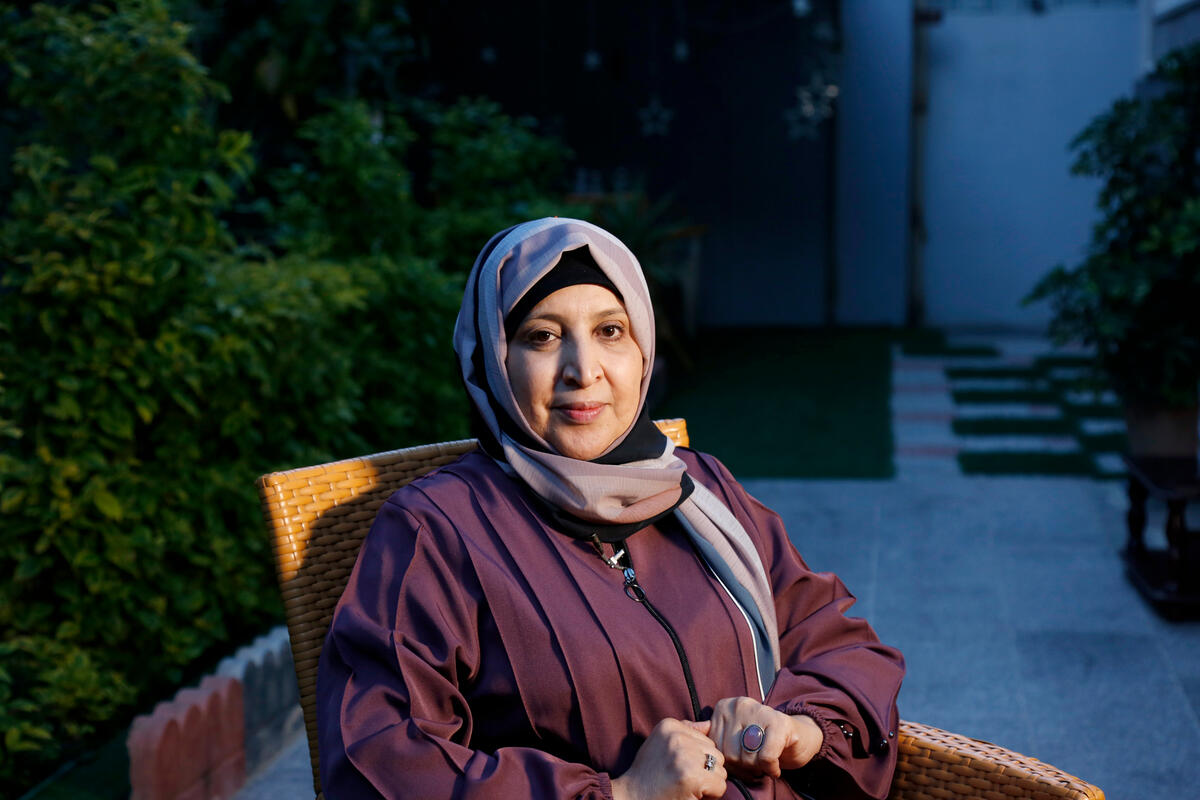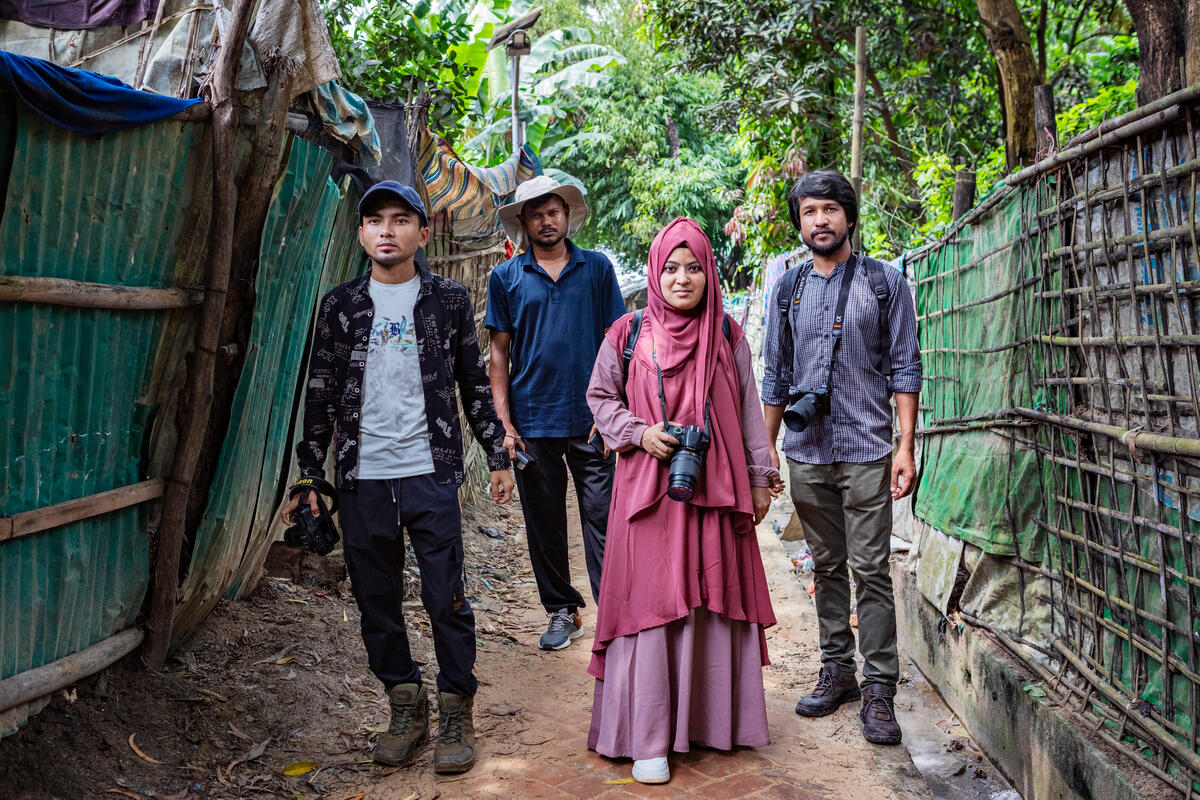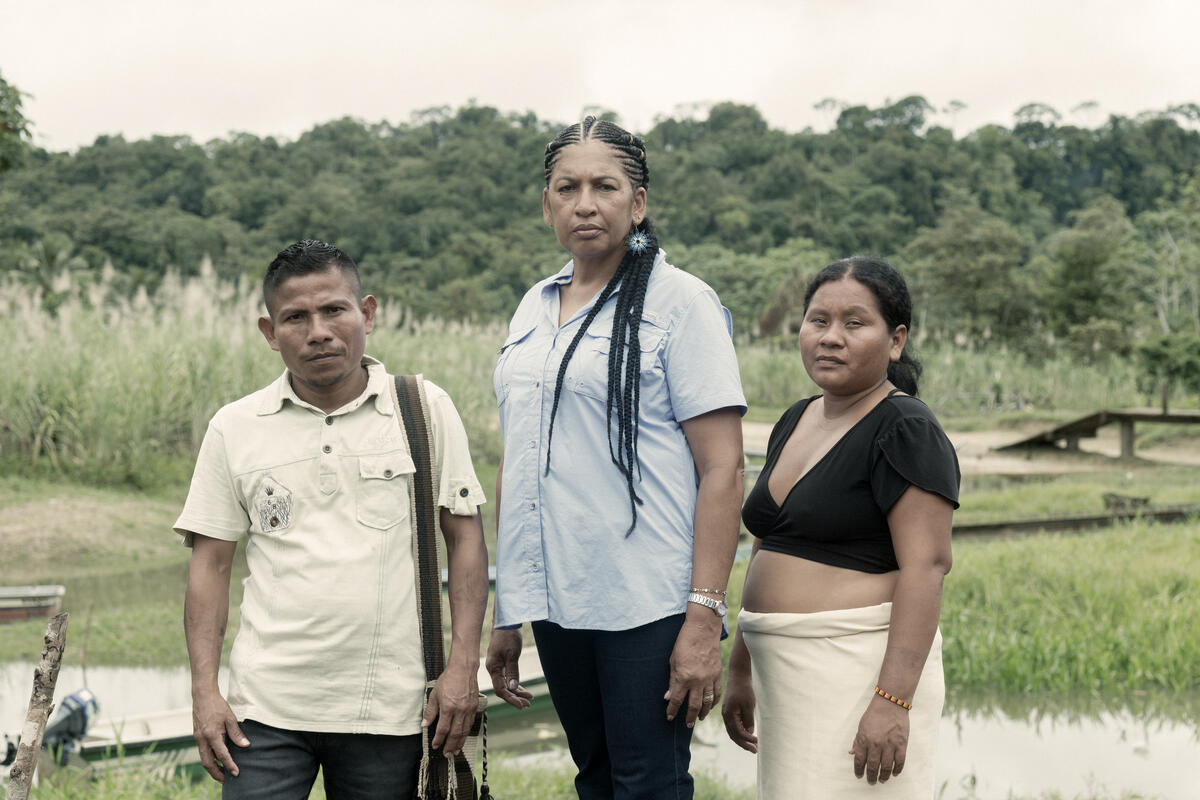Annual Nansen Refugee Award presented to Japanese optometrist
Annual Nansen Refugee Award presented to Japanese optometrist

GENEVA, October 3 (UNHCR) - The prestigious Nansen Refugee Award was formally presented to Japanese optometrist Akio Kanai in Geneva on Monday night for his work in improving the sight of tens of thousands of uprooted people around the world over the past two decades.
In a ceremony at the headquarters of the UN refugee agency, Dr. Kanai said he was "deeply honoured and grateful," adding that the award was "testimony to the significance that the role of optometry plays in the future of refugees by improving their sight and thus empowering them to secure a 'future in focus.'"
The award, which comes with a medal and a cash prize of US$100,000, is given out yearly to a person or group for outstanding services in supporting refugee causes. Dr. Kanai said he planned to use the money to help vision-impaired displaced people in Azerbaijan and refugees in Armenia.
The Nansen Refugee Award committee selected Dr. Kanai, 64-year-old chairman and chief executive officer of Fuji Optical, for his practical commitment to humanitarian work and dedication to easing the plight of refugees by improving their eyesight.
The committee found the doctor had "rendered exceptional service to the refugee cause" and had made a huge and genuine contribution to uprooted people in human as well as financial terms. Dr. Kanai's company is based in Japan's northern island of Hokkaido.
"We are very proud that we are the partner of Dr. Akio Kanai and that the partnership has been extremely important for the lives of more than 100,000 refugees," High Commissioner for Refugees António Guterres said before handing over the Nansen medal to the Japanese winner.
Dr. Kanai, himself forcibly displaced from the northern Pacific island of Sakhalin at the end of World War II, first became interested in volunteer humanitarian work when he was in the United States training to become an optometrist.
He began his humanitarian optometry work in 1983 in Thailand with Indochinese refugees, many of whom had lost or broken their glasses while fleeing. He has since conducted more than 20 missions for UNHCR to help uprooted people in Nepal, Thailand, Azerbaijan and Armenia.
Dr. Kanai has donated more than 108,200 pairs of glasses, provided optometry equipment, made cash grants and trained local medical staff. Fuji Optical, which is UNHCR's longest-serving corporate partner, also undertakes regular Vision Aid missions. Scores of employees have taken part in these missions, using their holidays to work in refugee camps.
"Without the dedicated and caring support received through our partnership with the UNHCR, the success of the Vision Aid missions simply would not have been possible," Dr. Kanai said at Monday's ceremony.
The Japanese humanitarian said his work with UNHCR was exciting, full of life-changing experiences and had "enriched my life immensely." He said he planned to continue with his work with refugees and internally displaced people.
"I hope this award demonstrates that sometimes, small individual efforts can play an important role in the lives of refugees and internally displaced persons," Dr. Kanai said.
The Nansen Refugee Award, created in 1954, is named after Fridtjof Nansen, the celebrated Norwegian polar explorer and the world's first international refugee official. Previous recipients include Eleanor Roosevelt, Médecins Sans Frontières, Queen Juliana of the Netherlands and Graça Machel.








